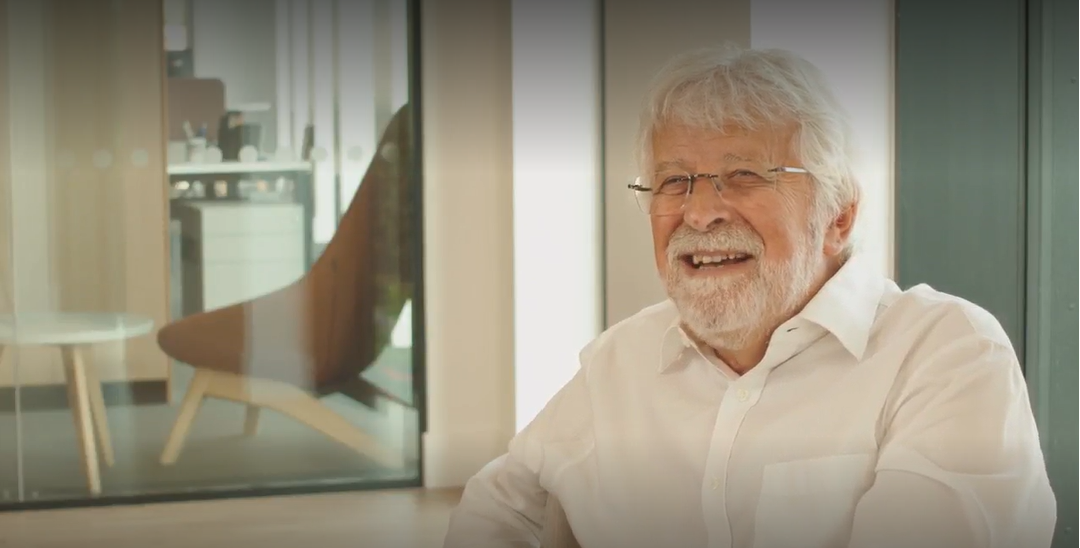A leading pioneer of the co-operative and trade union movement in Wales, David Jenkins, OBE, is to stand down from his role as the Chair of Cwmpas (formerly the Wales Co-Operative Centre) this week – an organisation he helped found and has been intrinsically involved with for over 40 years.
David is not only a founding member of Cwmpas and an active member of its Management Board since the first meeting in 1982, but he has also been Chair of the national development agency since the early 1990s.
As he stands down after four decades of championing the Co-operative Movement in Wales, David spoke of his pride in all that has been achieved.
____________________________________________________________________________________
Just over forty years ago, in 1982, I was a Research Officer with the Wales TUC. It was a time of economic hardship (things don’t’ change much do they), and there were large scale job losses in steel, coal and manufacturing industry. The trade unions did what trade unions always do; they campaigned against the closures and redundancies and they fought for compensation for their members when the battle to keep the jobs became lost. But collectively, through the Wales TUC, we did something else; we decided to try to support those redundant workers and their communities in generating new jobs and opportunities in worker and community owned co-operatives. And with that the Wales Co-operative Centre was born.
Today, as Chair of Cwmpas, as the Wales Co-operative Centre is now known, I can look back on the past four decades with considerable pride as the organisation has grown to become one of the largest and most successful co-operative development agencies in the UK. It has been four decades during which we have worked with communities throughout Wales to promote social, financial and digital inclusion and to empower people to take control of their future by forming new co-operative businesses.
Having been personally involved in the setting up of the Wales Co-operative Centre in the early 1980s, having served as a member of its Board since that time and having served as its Chair since the mid-1990s, I can say with some confidence that the decision taken by the Wales TUC to establish the Centre was both unconventional and inspired. Rather than just looking for someone else to solve our problems it was a decided we should try tackling those problems ourselves. It was an approach which remains unmatched throughout Europe and serves as an example of how trade unions can and should take a leading role in economic development and in supporting co-operative business models.
When asked about our greatest success it’s always tempting to roll out the example of Tower Colliery. A pit and mining community discarded as redundant by British Coal but subsequently transformed by the willingness of its workforce to invest in a successful co-operative mining venture. There can be no doubt that the success of the Tower co-operative and the significant international interest it attracted helped to raise public awareness about co-operation and the role of the Wales Co-operative Centre.
But for me a more fundamental success has been the ability to attract and sustain support from across the political spectrum. It’s no secret to say that the Wales TUC never expected the Thatcher Government to provide financial support for the setting up of the Wales Co-operative Centre. The press release criticising Government indifference to the problems of Wales had already been drafted when we made our pitch to the Secretary of State for Wales. But provide financial support they did; ongoing financial support which in turn opened the door to European funding and the Centre becoming seen as an exemplar organisation within Europe. Today, the continued support which Cwmpas now receives from the Labour Welsh Government is perhaps less surprising but certainly no less valued.
For over forty years the Wales Co-operative Centre has utilised European funds to the benefit of disadvantaged communities across Wales and in support of co-operative solutions. With Brexit and the ending of European funding, and without a comparable UK government funding regime to replace it, Cwmpas is having to readjust and refocus. Looking ahead, I am sure that Cwmpas will be pursuing a broader spectrum of funding opportunities as well as more opportunities for earned income. We will be looking at collaboration and partnerships, at opportunities to improve efficiency as well as outcomes. But in doing this, one thing will stay the same, we will remain true to our values as a co-operative, and our mission to build a fairer, greener economy and a more equal society, where people and planet come first.
Although I am standing down as Chair and ending my tenure as a board member of 40 years, I remain committed to this organisation and to Cwmpas’ values and its mission. It’s a mission that sits well with the aspirations of our Welsh Government and its commitment to future generations, and it’s is a mission that tells me that for all our past successes Cwmpas still has much to do, and every reason to have a very successful future”
____________________________________________________________________________________
Cwmpas CEO Bethan Webber paid tribute to David’s unwavering commitment to the organisation.
She said: “David has been a leading figure in the development and promotion of Cwmpas and the movement over the last 40 years and he has left an incredible legacy, and one which we will honour as we move forward into a new chapter.
On behalf of the board, senior leadership team, and everyone at Cwmpas, past and present, I want to thank David for his unstinting commitment and contribution. We wish him well for the future and i also want to extend my personal thanks for his welcome and support for me since I joined Cwmpas in May this year. And I have no doubt that whilst he is retiring form his role as chair of Cwmpas, he will remain a friend and mentor to the organisation.”










